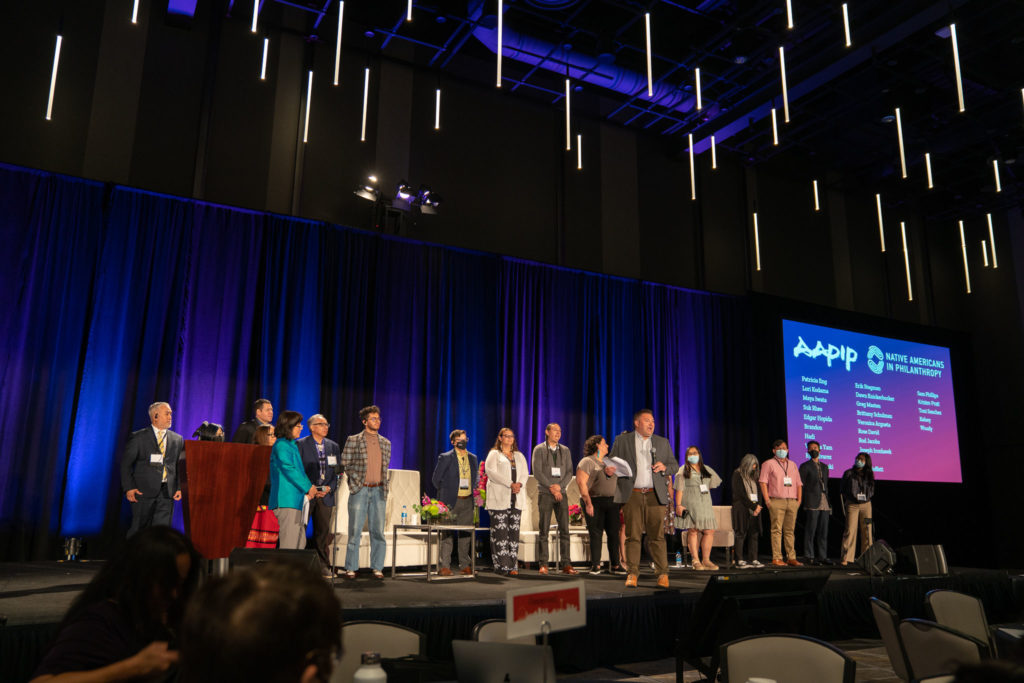Asian American, Pacific Islander and Native American relatives and relations in the philanthropy field gathered in Seattle, WA, June 26-29, 2022, for the Power in Solidarity conference to celebrate the leadership of our shared peoples and cultures in the sector and develop strategies to build power and increase resources in our communities.
The event, co-hosted by Asian Americans/Pacific Islanders in Philanthropy (AAPIP) and Native Americans in Philanthropy (NAP), celebrates more than three decades of our two organizations and peoples working to build a new vision for power in the sector.
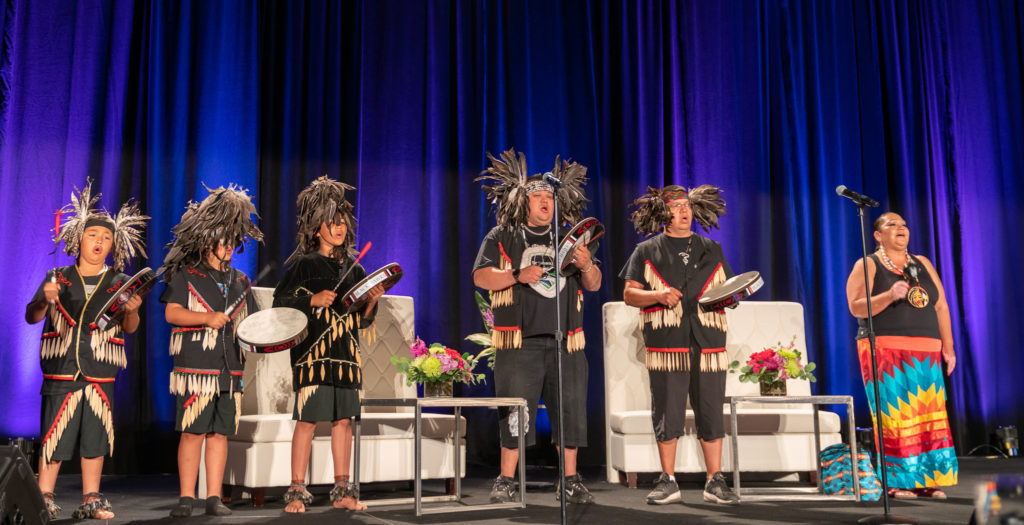
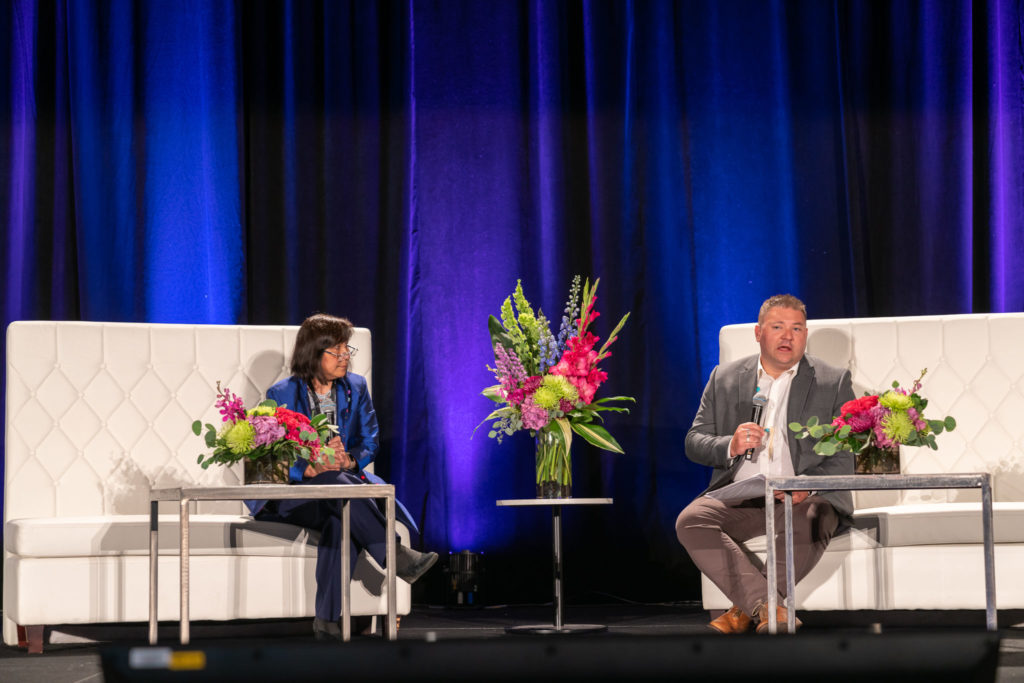
Attendees at the sold out, in-person event expressed their commitment to transformative solidarity, to redefining power in the spirit of generosity, and to building shared strategic directions.
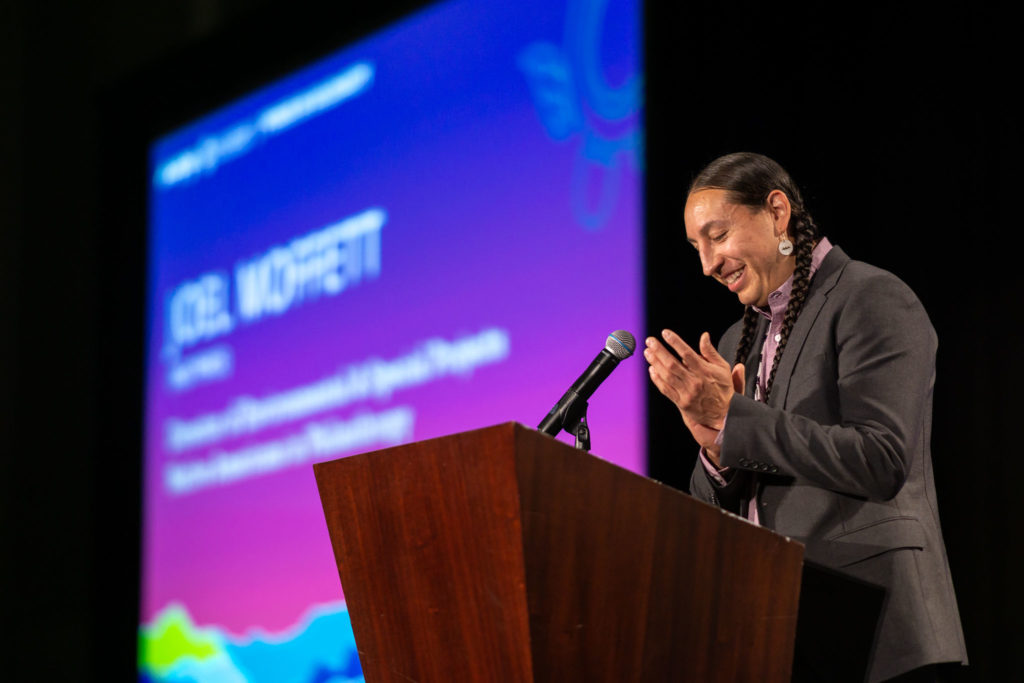
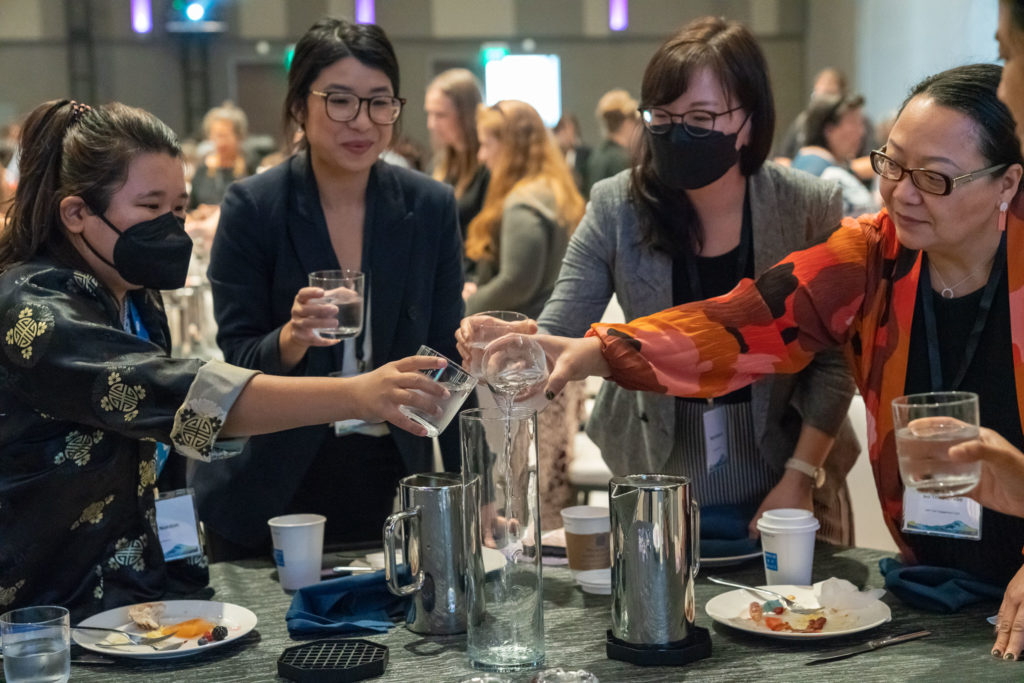
The event afforded both organizations dedicated time to conduct their own organizational business, such as chapter and board meetings, as well as bring all attendees together during daily opening plenaries, concurrent sessions, networking opportunities and celebratory gatherings.
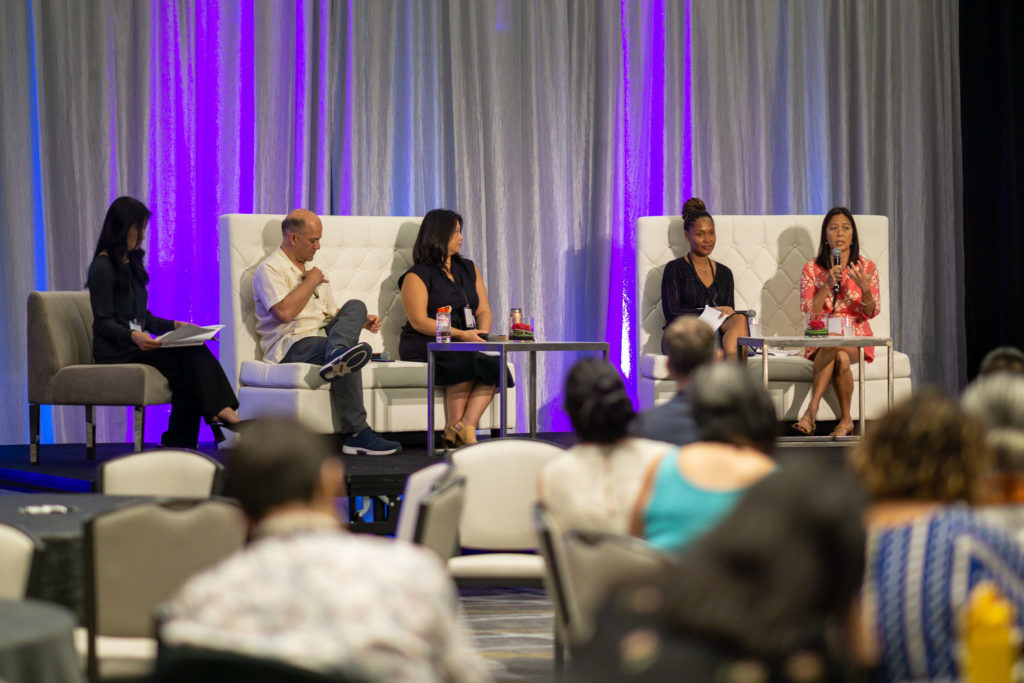
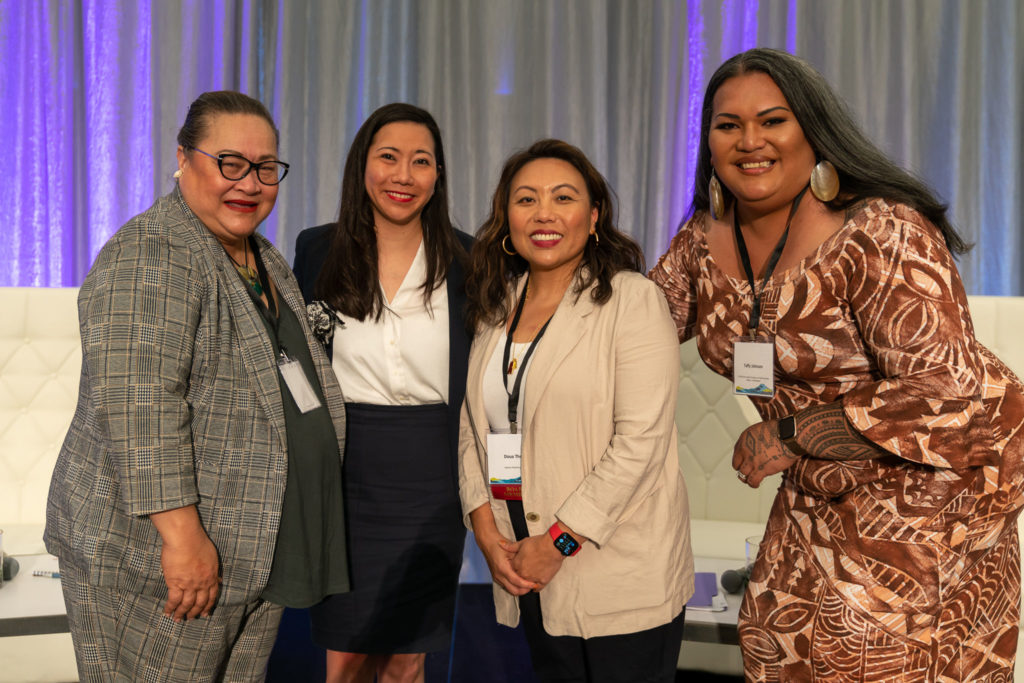
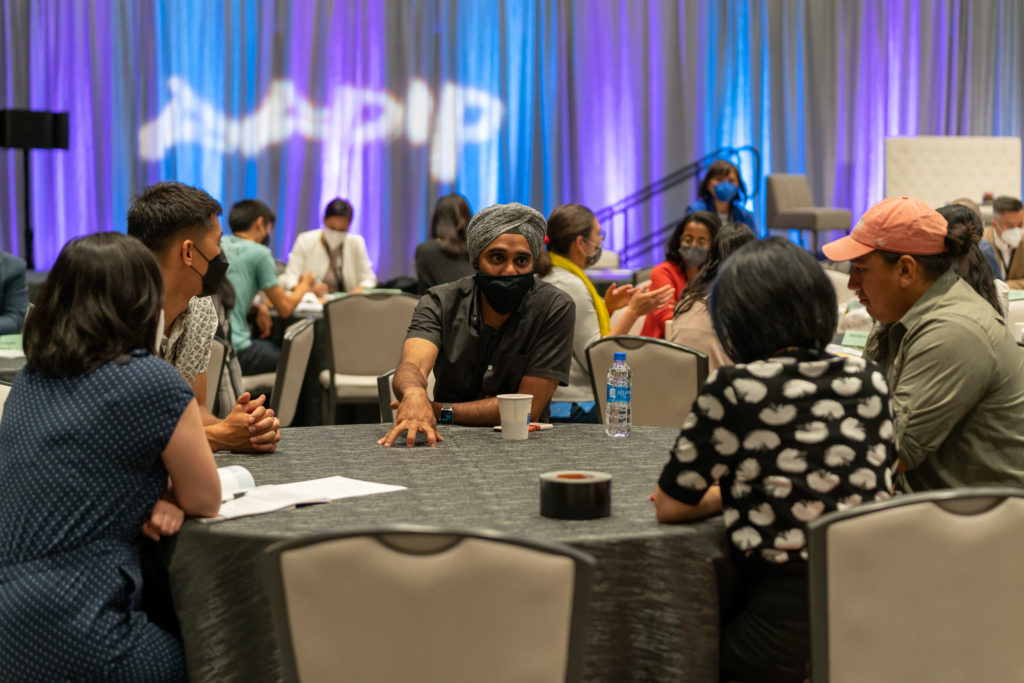
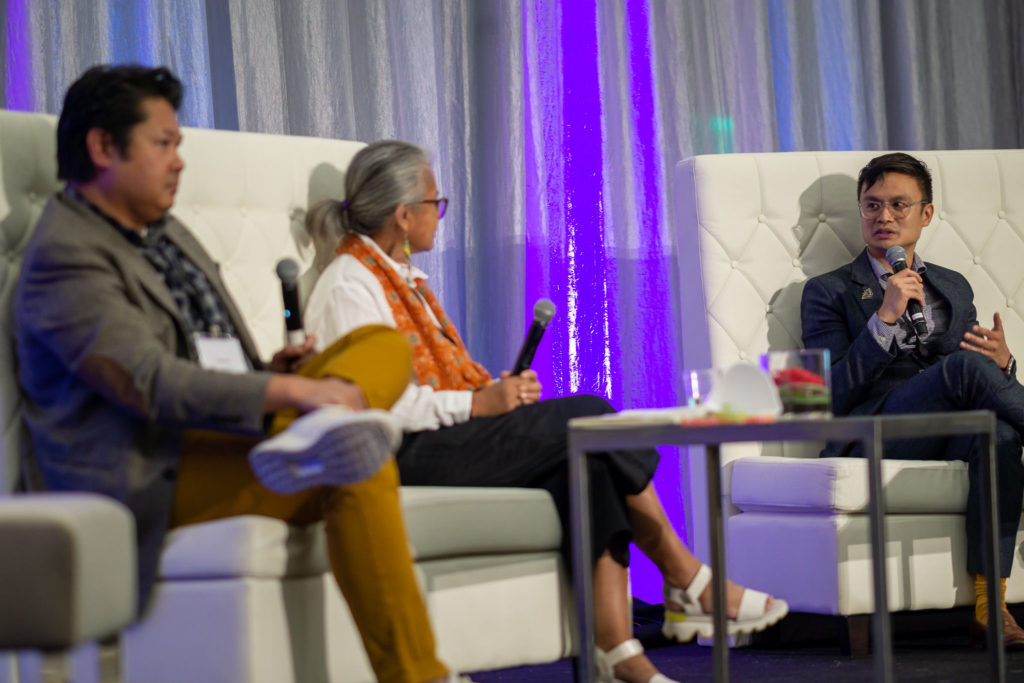
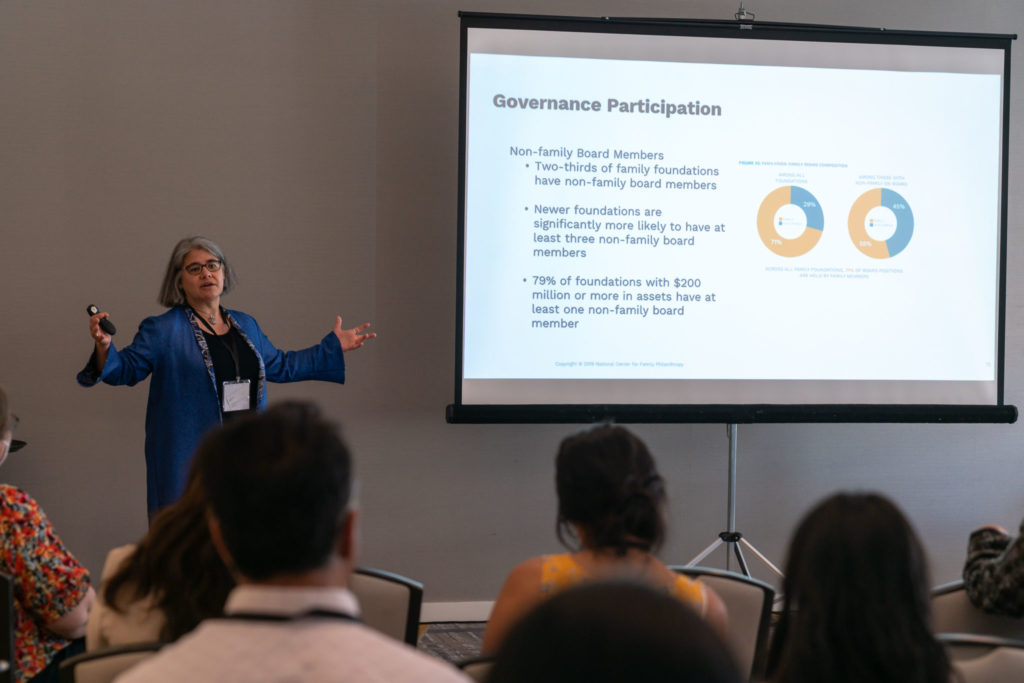
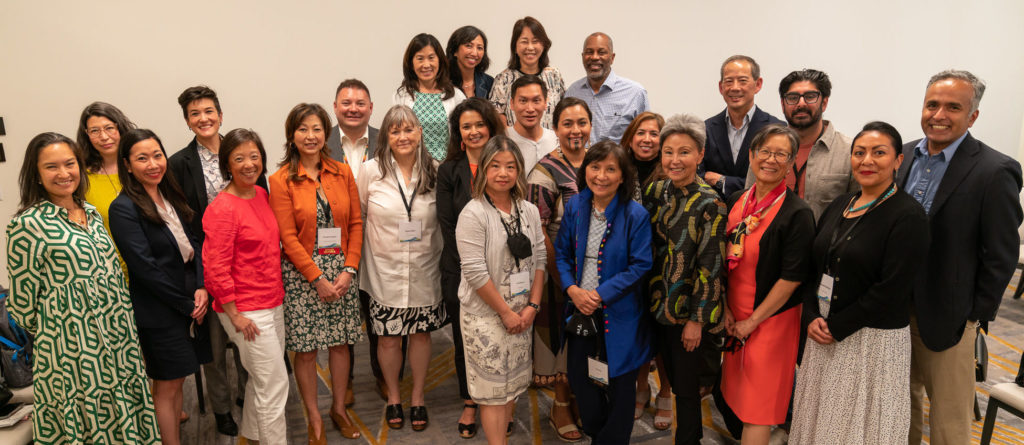
During the Opening Plenary on Monday, June 26, AAPIP and NAP welcomed new as well as long-time leaders, partners and members of their shared philanthropic family. NAP CEO, Erik Stegman shared, “Today we’re going back to our roots, together, in an effort throughout this conference and beyond to build a more resource-rich future for Native and AAPI communities.” Concurrent afternoon sessions offered attendees the chance to learn more about a far-ranging list of topics, such as how to develop cross-racial solidarity and build an Indigenous philanthropy knowledge ecosystem. Attendees had the opportunity to learn more about the recently launched Tribal Nations Conservation Pledge & Funding Collaborative, a centralized platform to inform, coordinate, and fund Tribal Nation conservation work. The importance of expanding access to education and employment for Native youth and young adults based on the priorities of the communities, while also expanding youth leadership and voice, was also an important topic of conversation of the day. “Young people are meant to be the decision-makers and leaders we have been waiting for,” said Juan Martinez of the Opportunity Youth Forum.

The successful first-day gathering concluded with a celebratory evening reception where old friends gathered and new connections were made. For many, it was the highlight of the Gathering, bringing joyfulness in solidarity.
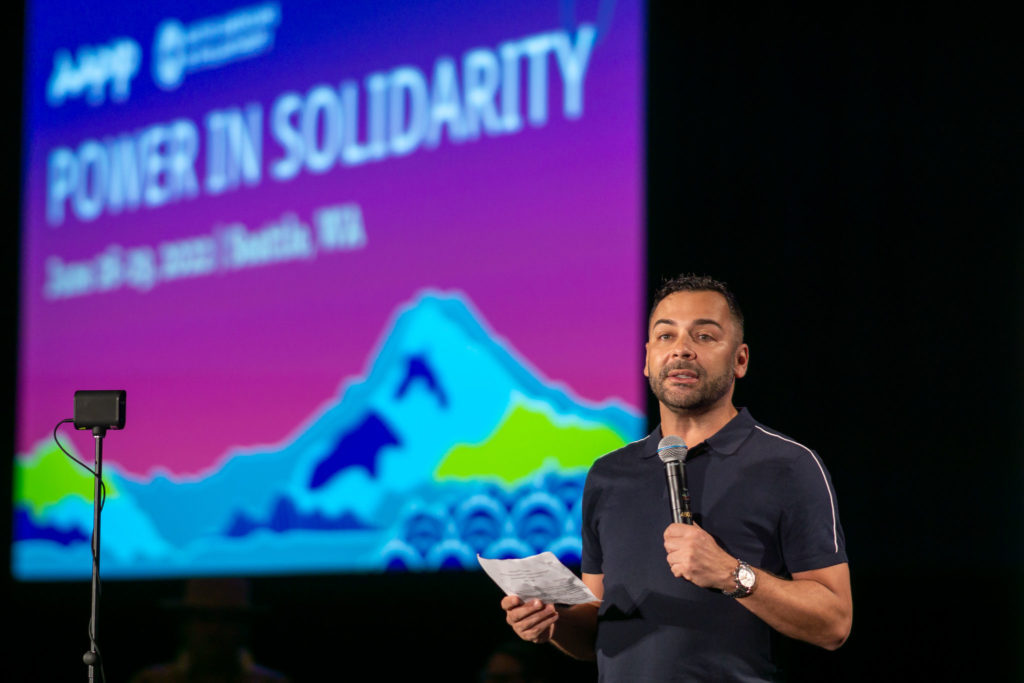
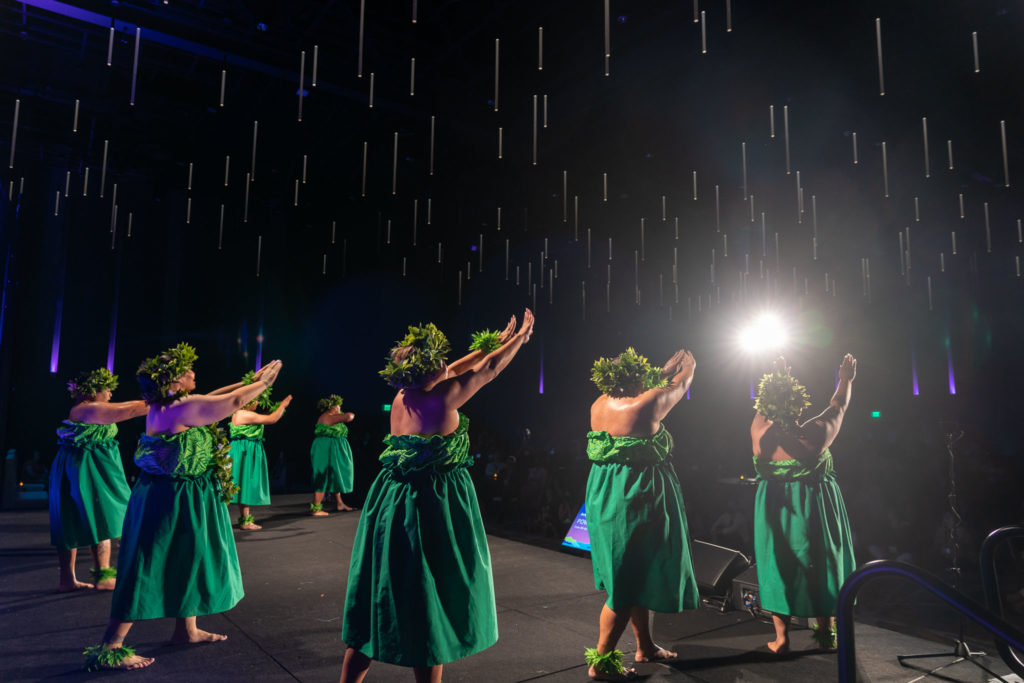
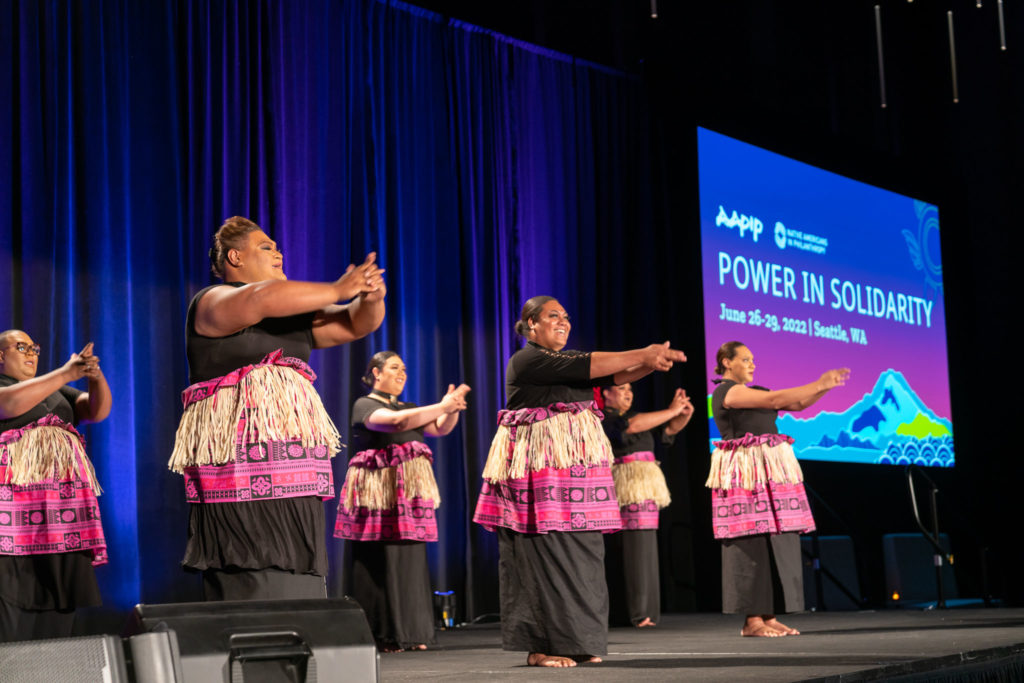
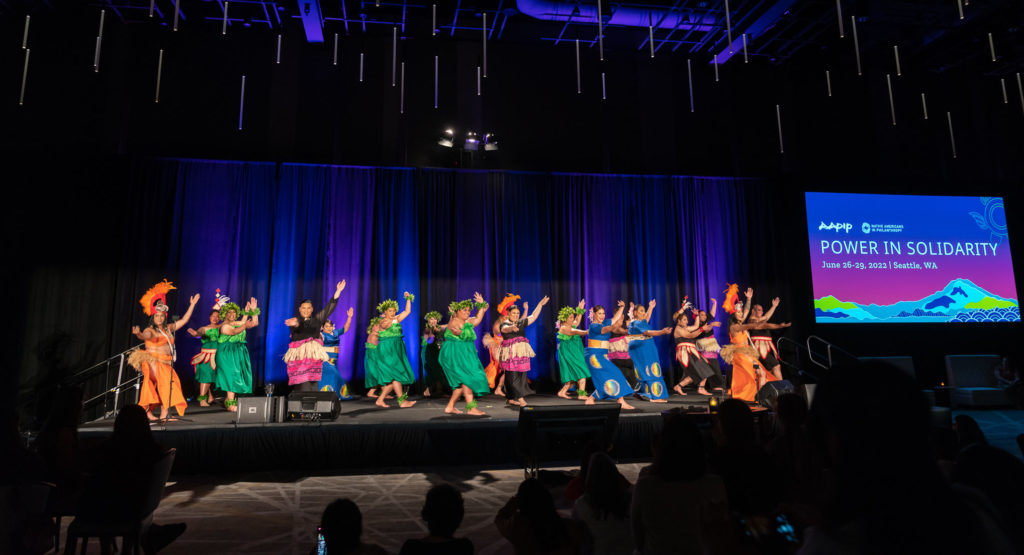
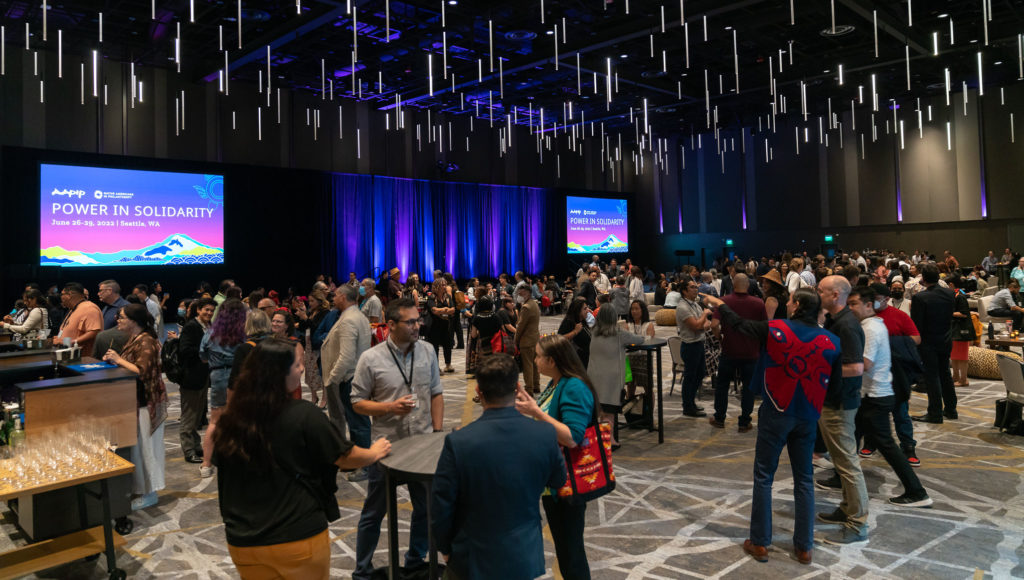
The Tuesday, June 28, Plenary featured a panel of leading experts on land, climate and conservation discussing the interconnected issues of land rights, cultural practices and self-determination for shared AAPIP and NAP communities. More concurrent sessions followed lunch and canvassed important topics and issues such as decolonizing philanthropic practices, building inclusion together, harnessing civic and voter power, improving communications between Native leaders and non-Native audiences, harnessing the power of storytelling as a catalyst for change, the importance of Indigenous data sovereignty & data governance, and a panel discussion on the documentary, “Honor Thy Mother,” an untold story of Aboriginal women, Filipino fathers and their Indipino children on Bainbridge Island.
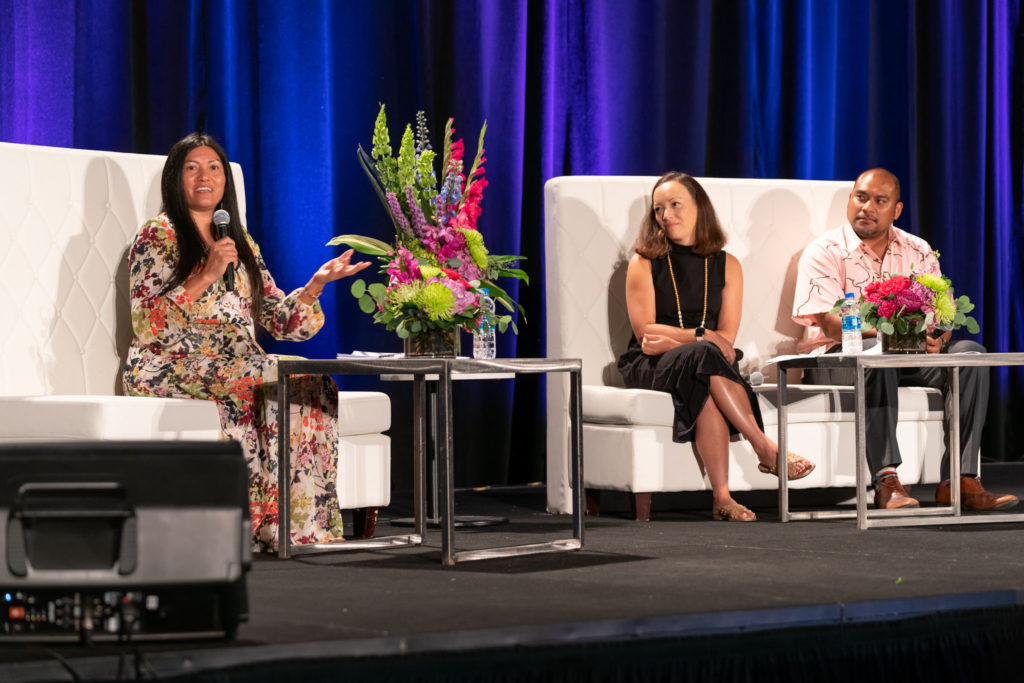
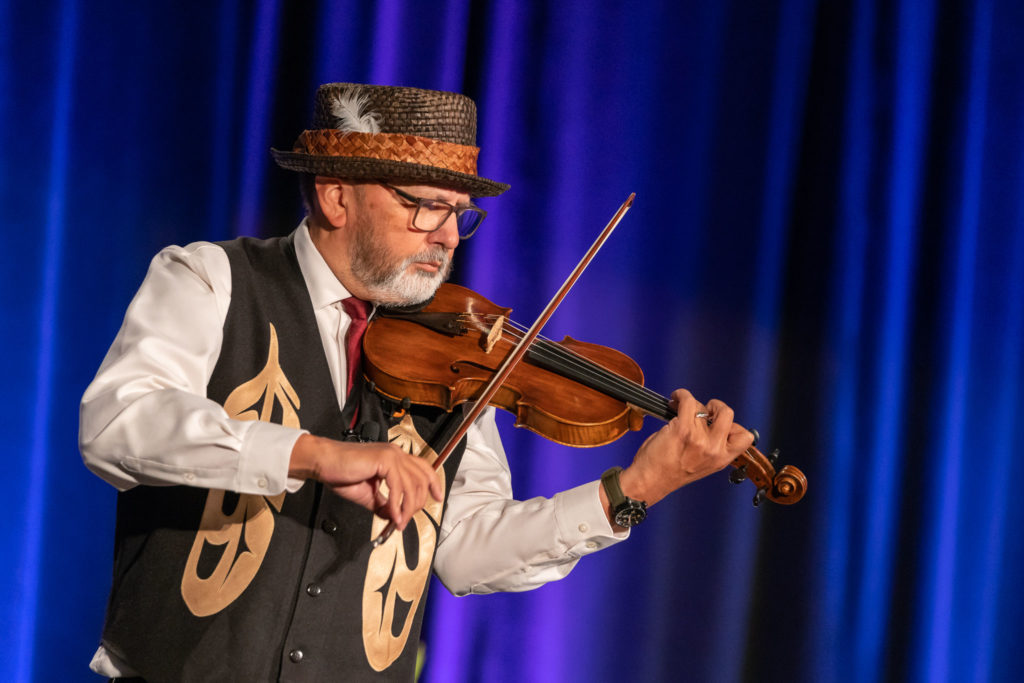
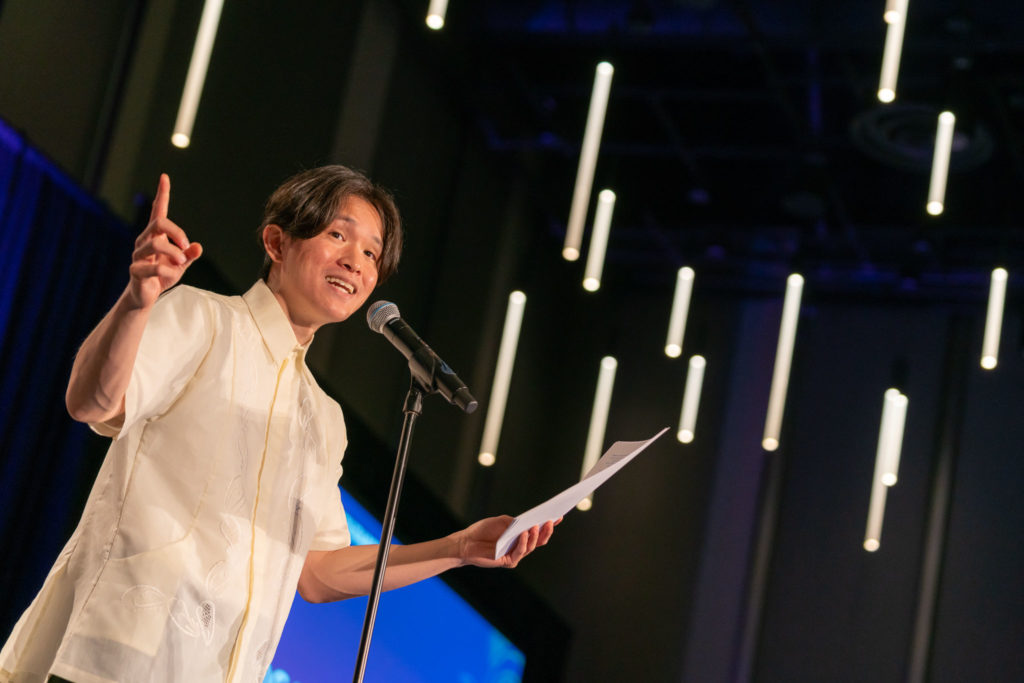
The second day of the gathering also featured walking tours organized by the Wing Luke Museum of the Asian Pacific American Experience. Attendees from the gathering had an opportunity to tour one of Seattle’s oldest historic neighborhoods, the Chinatown-International District to learn more about the relationship between ethnic communities and their environments, including the challenges of early immigrants to build and transform their neighborhoods.
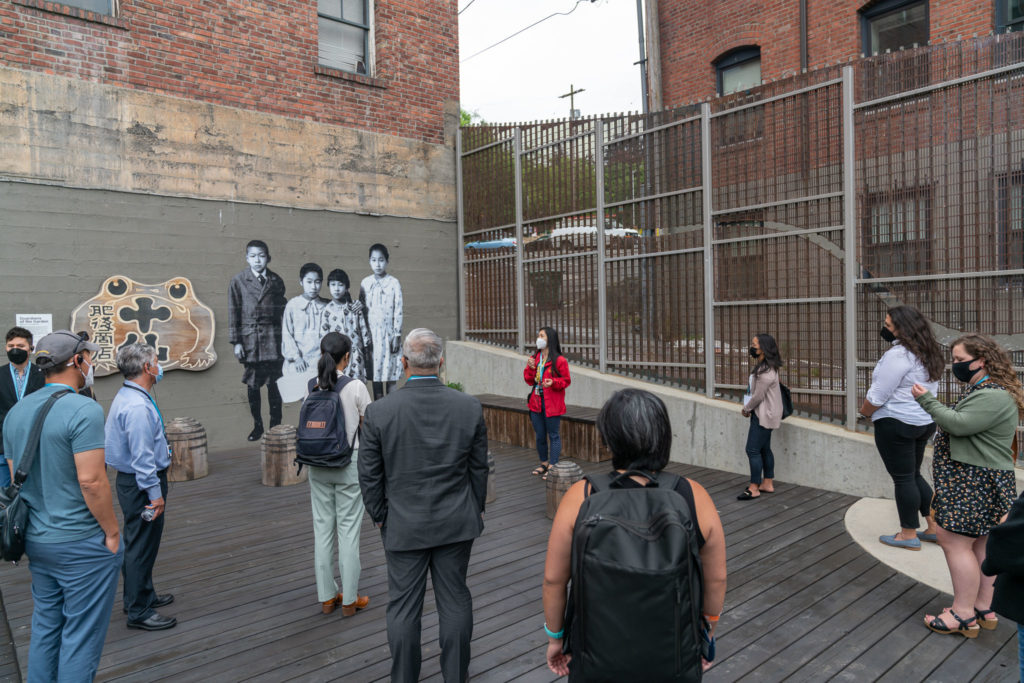
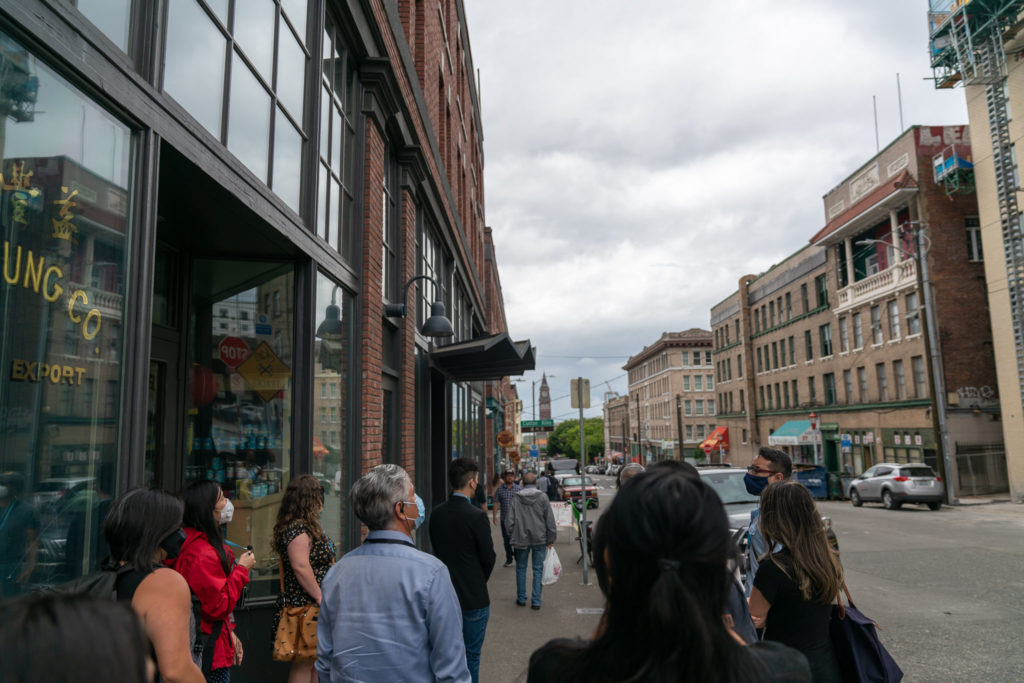
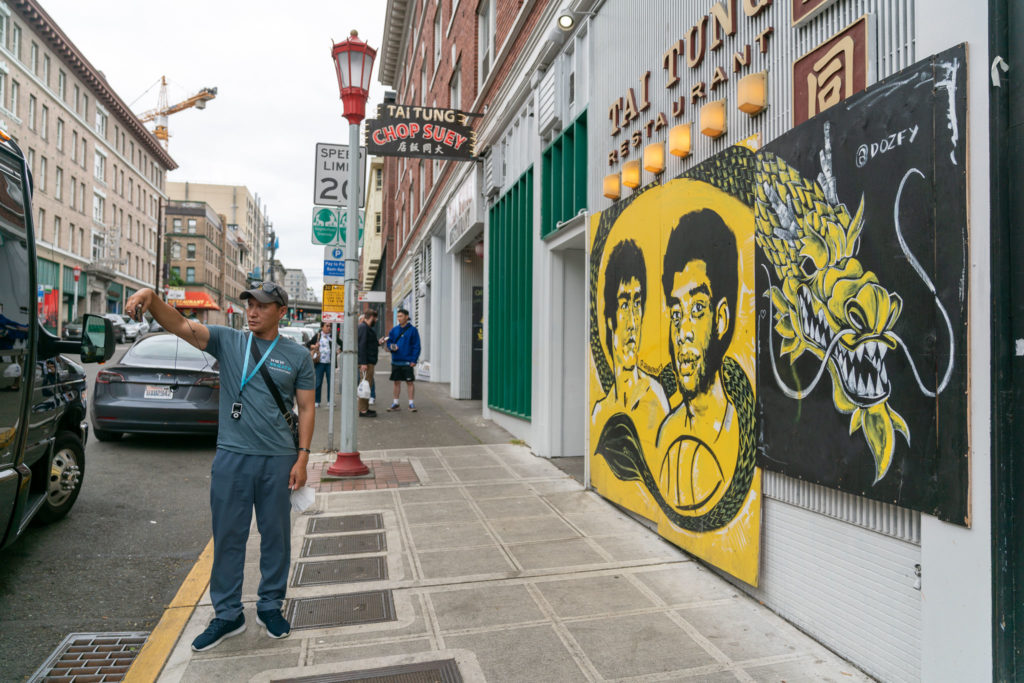
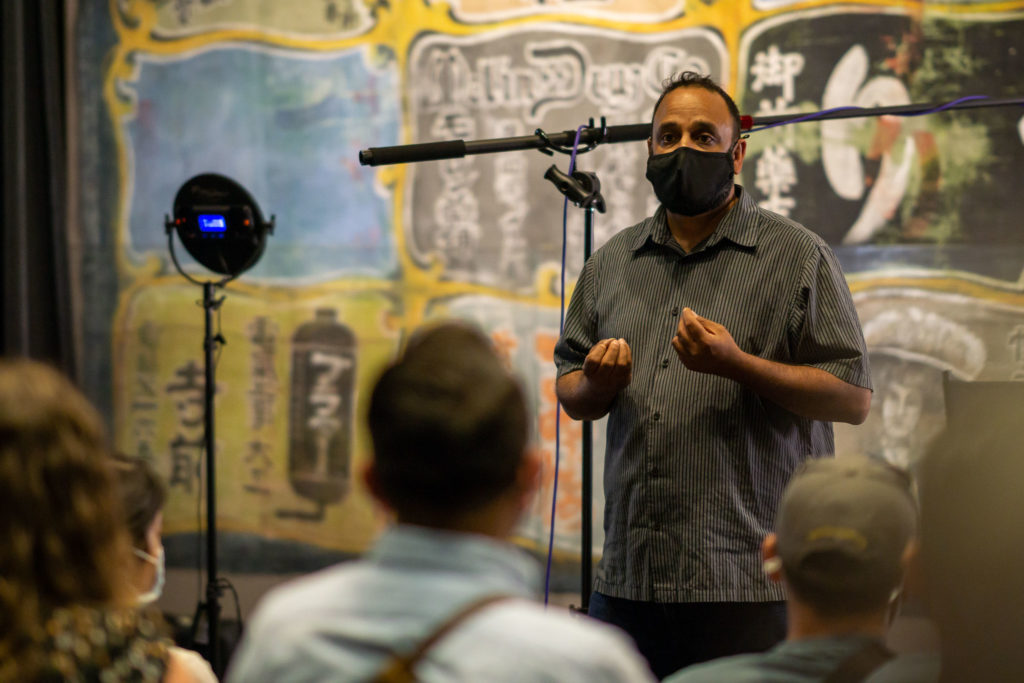
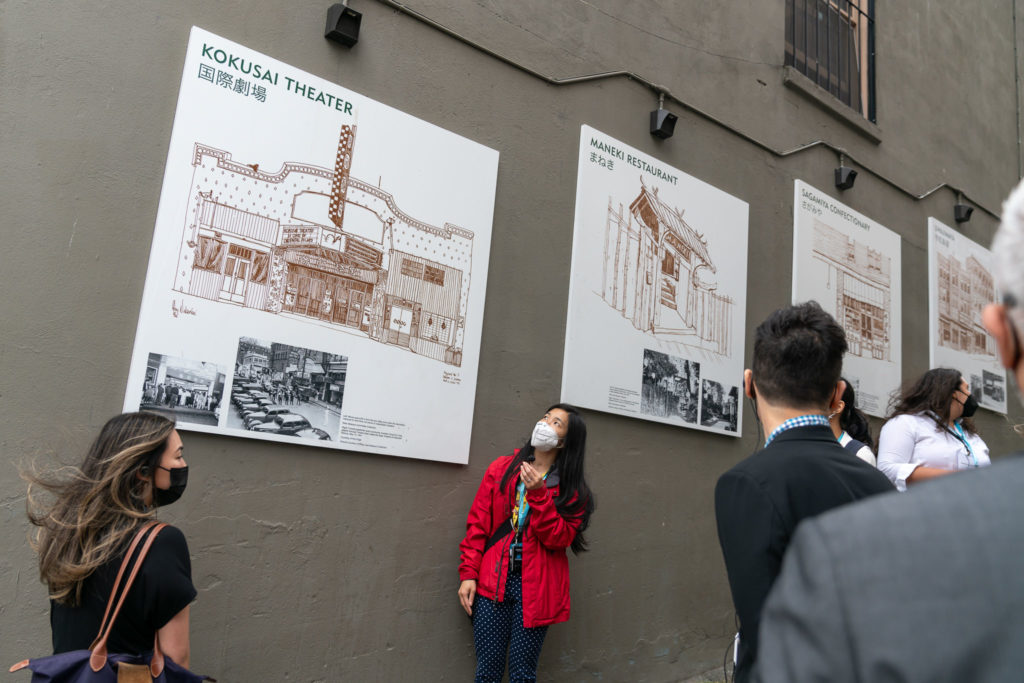
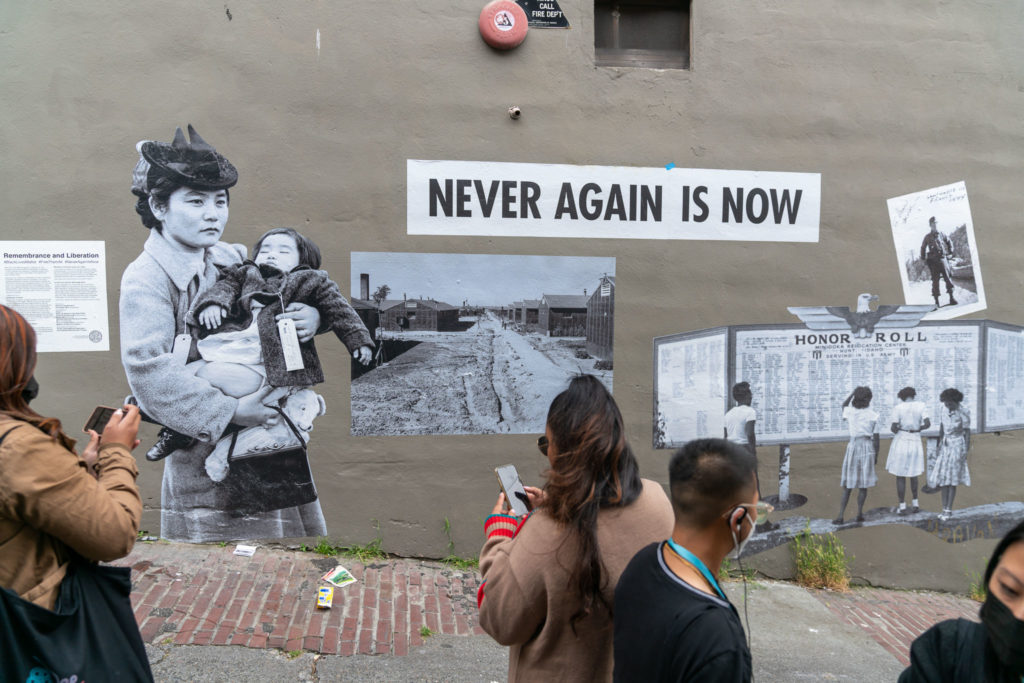
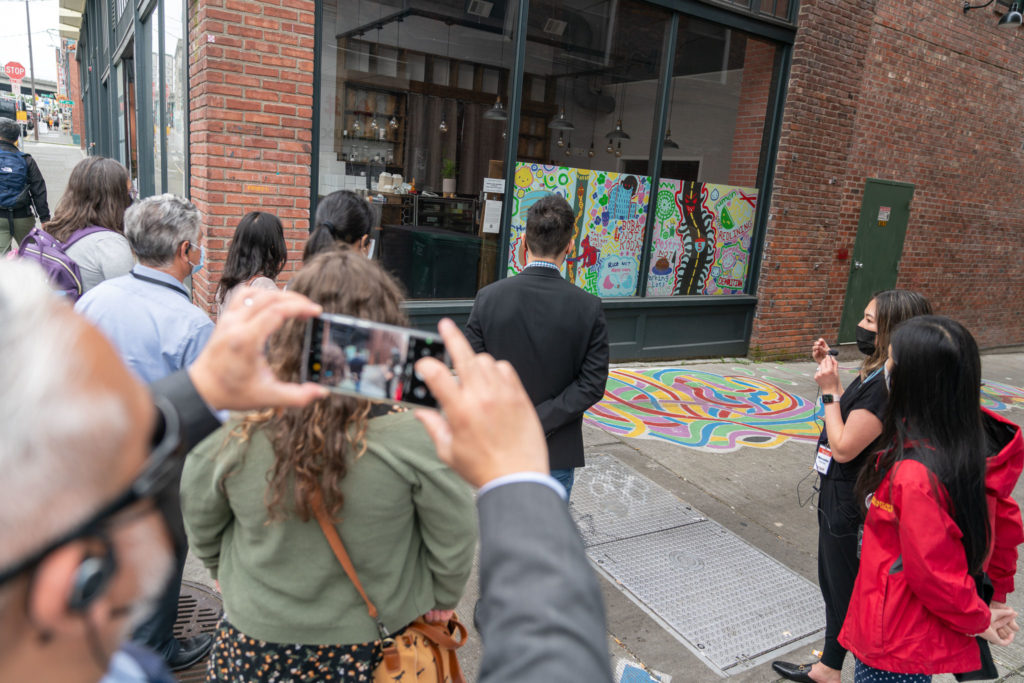
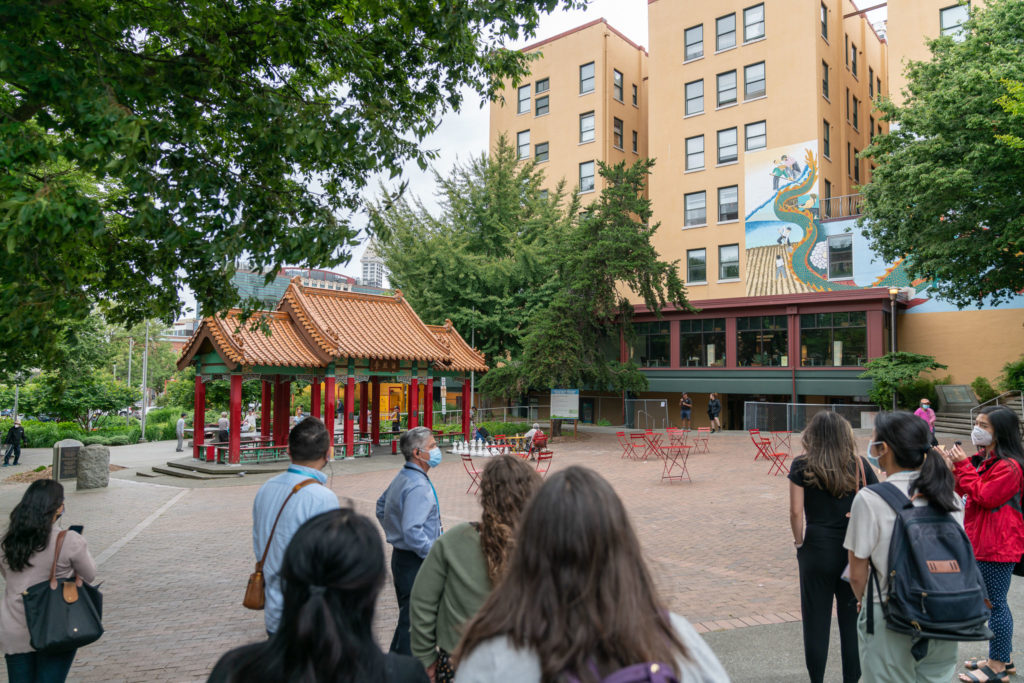
The morning of Wednesday, June 29, offered attendees additional concurrent sessions to learn more about important topics such as a social justice introduction to philanthropy, leadership for racial justice philanthropy, the importance of place-based leadership, and tools for self care.
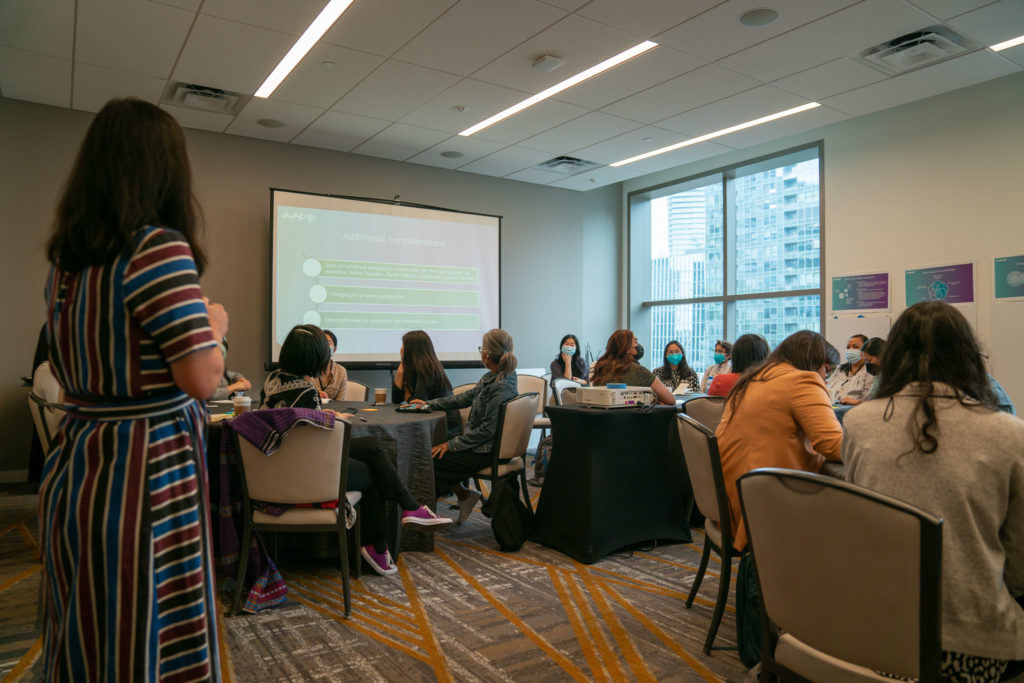
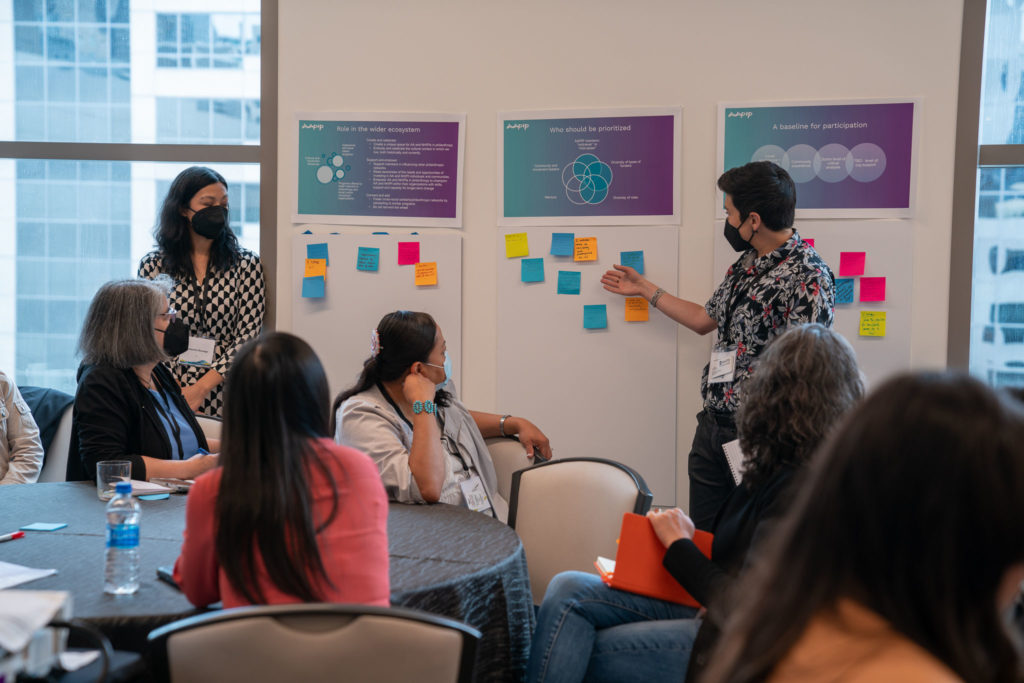
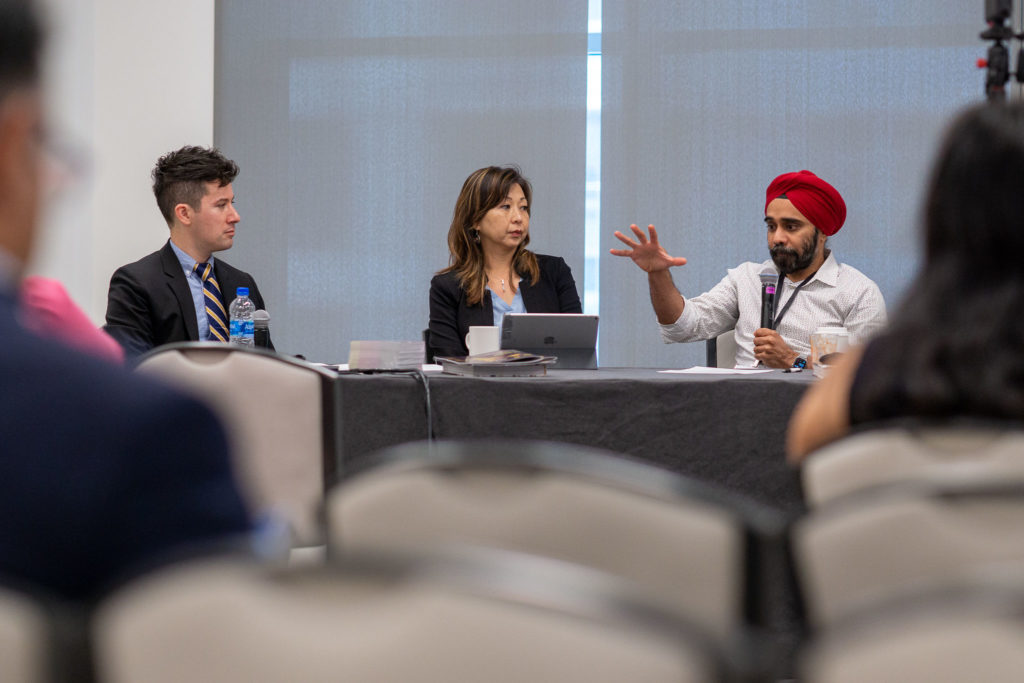
During the Closing Plenary, funding solidarity through civic engagement was the focus. Shared lessons were provided from the work that AAPI and Native communities conducted in partnership with the Coulter Foundation to move resources to local civic engagement organizations across the country. “At the end of the day, you have to do civic engagement because it will make you visible. When you are visible, you have a voice and a seat at the table,” shared Sue Van of the Wallace H. Coulter Foundation.
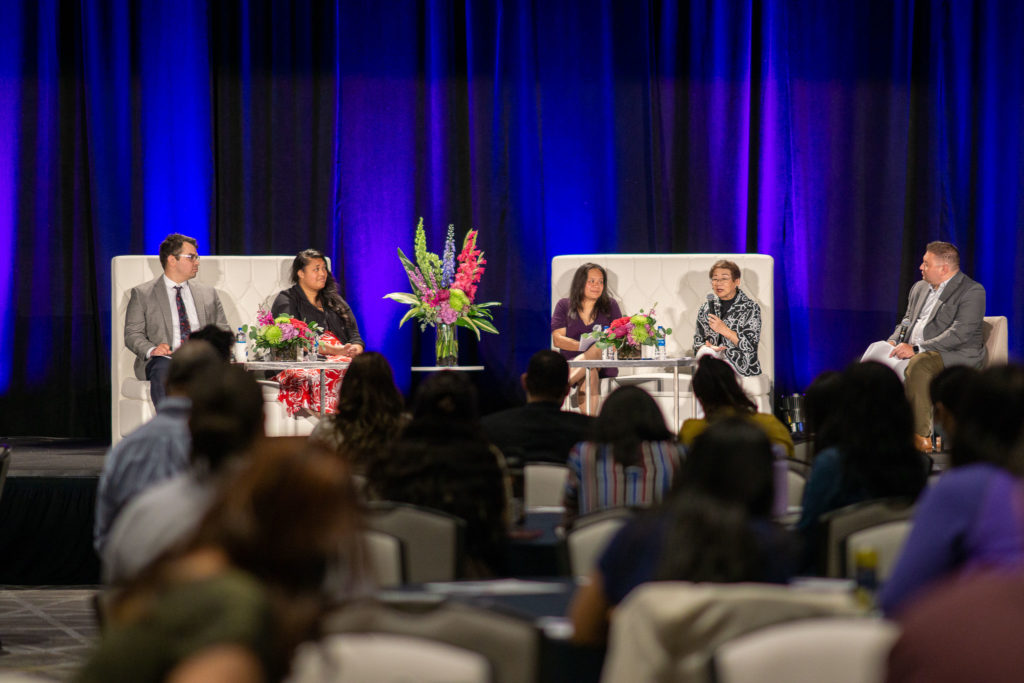
As the gathering came to a close, AAPIP and NAP leaders provided a vision for how to build on the powerful learnings and connections made during the three-day event.
“Power in Solidarity was an immersive experience centering Asian American, Native Hawaiian, Pacific Islander, American Indian, Indigenous people and the meaning of philanthropy,” said AAPIP President and Chief Executive Officer, Patricia Eng. “Long before the philanthropic sector in this country was established, our peoples practiced generosity as a way of life. That spirit came alive in the main stage, cultural performances, session offerings, and the many conversations in between. It was the power of solidarity in action and we’re just getting started.”
NAP Chief Executive Officer, Erik Stegman, said, ”We created a special, new space together that week—one that set an example for the whole sector. It wasn’t just two organizations hosting conferences together. It was a celebration of the collective power of our peoples and cultures, and an authentic demonstration of what solidarity actually means in practice.”
